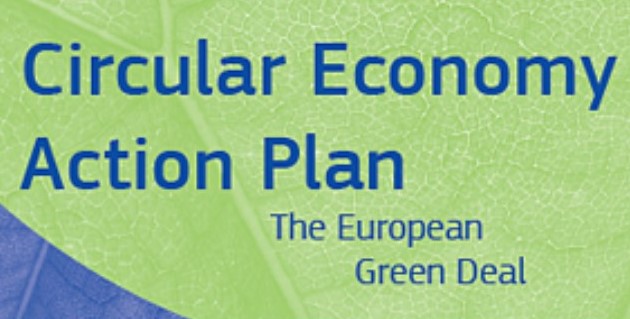The ENVI Committee within the European Parliament adopted today a report welcoming the Circular Economy Action Plan released in March 2020. The document urges the Commission to design a robust policy framework for a low-carbon circular economy.
Bellona welcomes the initiative report on the new Circular Economy Action Plan of the European Parliament, adopted today by the ENVI Committee. The report welcomes the Circular Economy Action Plan released in March 2020 by the European Commission, under the European Green Deal, and urges the Commission to design a robust policy framework for a low-carbon circular economy.
As fossil carbon embedded in products becomes an increasingly larger share of our emissions, reducing waste generation and material use becomes an important element in the climate discussion within the EU. As the EEA concluded in a recent report on Economic Growth, ‘’the circular economy may not deliver the transformation to sustainability if circularity measures fuel a growth strategy that leads to increased material consumption’’. Therefore, the EP’s call for binding targets for waste reduction and material use is particularly important and a welcome shift from measures which are usually added on top of the existing production and consumption system, such as recycling.
The key will be in the details
‘’While the report is a welcome and ambitious political message, it will need to be followed up by specific and binding measures. For example, we need a methodology that properly quantifies the real impact of circularity measures on the climate’’ said Ana Šerdoner, Policy Manager for Industry at the Bellona Brussels office. In the report, the EP also highlighted the necessity of scientifically robust measurement to capture synergies between the circular economy and climate change mitigation.
Quantifying and monitoring these synergies will be crucial to prevent any potential greenwashing practices. ‘’The Parliament’s emphasis of waste prevention is a good start. Making sure that circularity targets don’t lead to adverse effects such as an increase in material use will be important to keep circular economy measures in line with climate goals’’, she continued.
What next?
The EP’s report sets the stage for an ambitious circular economy action plan that reflects the EU’s environmental and climate goals. So how can these recommendations be leveraged within the initiatives of the CEAP to lead to the best outcome for the climate and environment?
- The EP’s call for binding 2030 targets on waste and material reduction should be taken up in the initiatives within the CEAP. Circularity cannot become an excuse for an overall increase in resource use which would lead to increased environmental damage and emissions.
- The EP urged the Commission to create harmonised, comparable and uniform circularity indicators for material and consumption footprints. Therefore, the Commission should establish a robust methodology to measure the climate impact of circularity, accounting factors such as the origin of the waste (e.g. fossil fuel) and the time that fossil carbon is kept in the ‘loop’.
- Reaching a higher share of circularity in EU’s economies will be a tremendous challenge. Therefore, there is a need to monitor progress and incorporate feedback to inform and correct policies. This would avoid adverse impacts such as an increase in overall consumption and help guide circularity policies towards climate and environmental goals.
- The circular economy is a complex set of concepts, actions and products that could open doors to greenwashing practices. To avoid that, the EPs recommendation to identify and prevent false environmental claims should be supported.
For more information on the impacts on waste and plastics, read the reactions from Zero Waste Europe and the Rethink Plastic Alliance.




